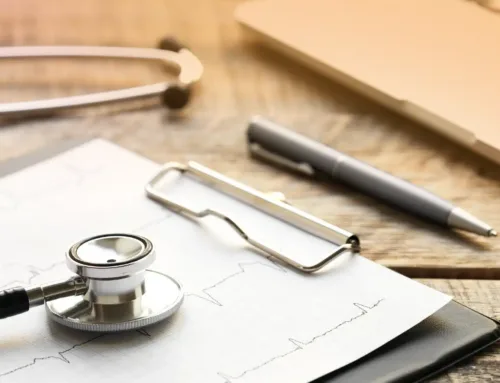Regular physical exams are an integral part of preventive healthcare, providing a comprehensive assessment of your overall well-being. At Lifestream Family Medicine, we believe in the importance of these examinations to monitor your health, detect potential issues, and establish a strong foundation for optimal care. In this article, we will guide you through what to expect during your physical exam, empowering you with knowledge and ensuring a comfortable and informed experience.
- Preparing for Your Physical Exam: Before your physical exam, it’s helpful to gather any relevant medical information, including your medical history, current medications, and previous test results. Make a list of any specific concerns or symptoms you would like to discuss with your healthcare provider. This information will help facilitate a productive conversation and ensure all aspects of your health are addressed.
- Vital Signs and Measurements: The physical exam typically begins with the measurement of vital signs, including blood pressure, heart rate, respiratory rate, and temperature. These measurements provide a baseline assessment of your overall health and help identify any abnormalities or changes since your last visit.
- Head-to-Toe Examination: During the physical exam, your healthcare provider will conduct a thorough head-to-toe examination. This may include:
- Examination of the head and neck, including the eyes, ears, nose, throat, and lymph nodes.
- Evaluation of the heart and lungs through auscultation using a stethoscope.
- Palpation of the abdomen to assess the organs, such as the liver, spleen, and kidneys.
- Assessment of the musculoskeletal system, including joints, muscles, and range of motion.
- Neurological examination, which may involve testing reflexes, coordination, and sensory functions.
- Skin examination to identify any lesions, rashes, or suspicious moles.
- Evaluation of the lymphatic system to check for swelling or abnormalities.
- Screening Tests and Assessments: Depending on your age, gender, and medical history, your physical exam may include various screening tests. These tests can help detect potential health conditions or risk factors. Common screenings may involve blood tests, urine analysis, cholesterol checks, and cancer screenings such as mammograms or prostate exams. Your healthcare provider will recommend the appropriate screenings based on your individual needs.
- Discussion and Counseling: Your physical exam is an ideal time to have open and honest discussions with your healthcare provider. Feel free to share any concerns, ask questions, or seek guidance on health-related topics. Your provider may offer advice on lifestyle modifications, preventive measures, or address any specific issues you raised. This dialogue fosters a collaborative relationship and empowers you to actively participate in your own healthcare.
- Follow-up and Next Steps: At the conclusion of your physical exam, your healthcare provider will summarize their findings, discuss any necessary follow-up appointments or tests, and provide recommendations for maintaining or improving your health. They may prescribe medications, suggest lifestyle modifications, or refer you to specialists if needed. It’s important to follow through with any recommended next steps to ensure continuity of care.
Remember, your physical exam is a valuable opportunity to assess and monitor your health comprehensively. By participating in regular physical exams, you are taking proactive steps toward preventive care and overall well-being. At Lifestream Family Medicine, we are committed to providing personalized and compassionate healthcare, empowering you to make informed decisions and achieve optimal health.
Schedule your physical exam today with Lifestream Family Medicine and embark on a journey of proactive healthcare and preventive wellness. Call Dr. Saska Sookra. Lifestream Family Medicine wants to be your primary care facility. Contact us to schedule an appointment by clicking this link or calling (941) 755-0433







